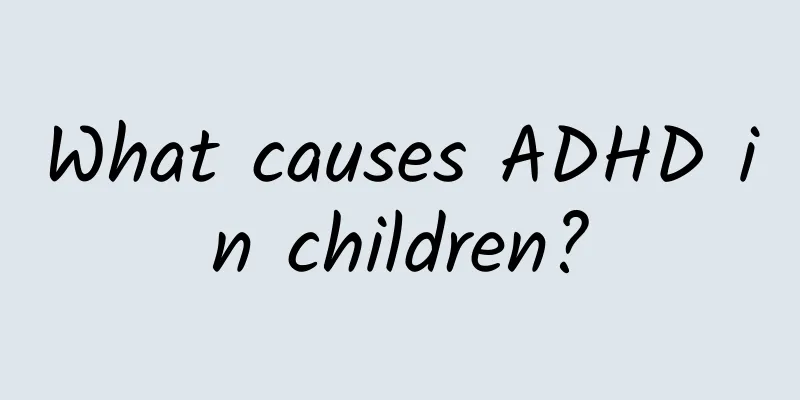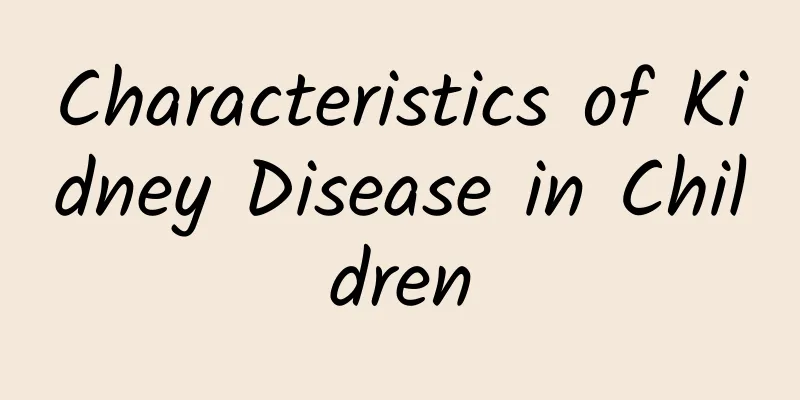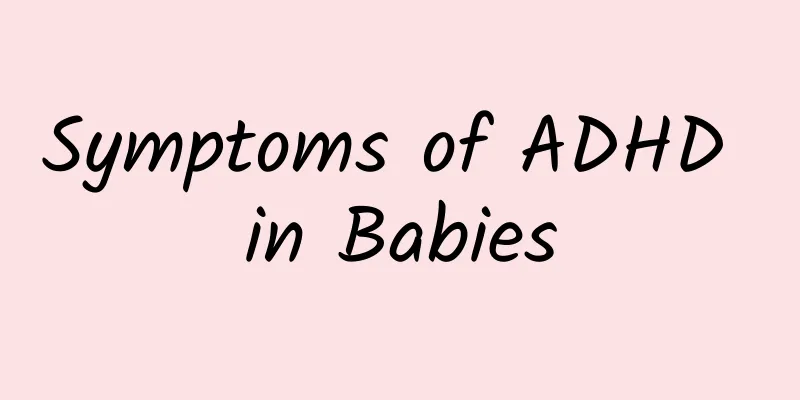How to avoid indigestion in babies How to deal with indigestion in babies

|
Digestive system diseases in children are common and frequently occurring diseases in babies. Not only do they have a high incidence rate, but they also change rapidly. Sometimes, due to improper treatment, the condition can become extremely serious. The reason is that children have "delicate internal organs, insufficient spleen", weak digestive function, improper postnatal conditioning, irregular diet, and strong taste, which makes them prone to digestive system diseases. Try to avoid foods that are difficult for babies to digest Fried foods: such as fried chicken nuggets and French fries are rich in oil and high fat, which can cause disease when accumulated in the stomach. Oil will produce a substance called "acrylic acid" at high temperatures, which is difficult to digest. Children should eat less or no fried foods. Although fried foods are difficult to digest and unhealthy, they are children's favorite snacks. It is recommended that mothers replace them with other foods. They can give children baked snacks such as cookies and small cakes. Chocolate: Children who eat a lot of chocolate will not only bring extra calories, but also easily cause gastrointestinal discomfort. Children under 3 years old are not suitable for eating chocolate. If children over 3 years old want to eat chocolate, they should eat it after meals or two hours before meals, and can only eat 1-2 small pieces of chocolate per week. Creamy mashed potatoes: Mashed potatoes are originally a delicious and healthy food, but many mothers add cream ingredients to mashed potatoes in order to make the taste more delicate and attractive. Cream is a difficult food to digest. For children with lactose intolerance, adding milk, cream, and cheese to mashed potatoes will cause stomach discomfort. Onion: Ingredients such as onions, garlic, and leeks are rich in various nutrients and are very beneficial to children's growth, but the disadvantage of these foods is that they are easy to cause gastrointestinal discomfort, such as flatulence, abdominal cramps, etc. If you feed them to children, cook them thoroughly, which can minimize the factors of gastrointestinal discomfort. Broccoli and cabbage: In addition to onions, there are cruciferous vegetables such as broccoli and cabbage. Broccoli and cabbage are rich in vitamins and dietary fiber, which are essential nutrients for children's growth. However, because these vegetables are high in fiber, it is easy to support the capacity of the stomach, leading to the accumulation of excess gas in the stomach. When the mother cooks these vegetables, she might as well blanch them in hot water to soften them, so that the sulfur compound that produces gas will lose its effect. Beans: Beans can also easily cause indigestion. Oligosaccharides contained in beans, such as stachyose and marshmallow, are fermented by intestinal bacteria and can be decomposed to produce some gas, which in turn causes symptoms such as hiccups, bowel sounds, bloating, and abdominal pain. Therefore, when children have stomach discomfort, they should not eat beans. What are the feasible measures to prevent indigestion in children? Cultivate your child's eating habits and tell them to choose food that suits their body type. Make sure they don't eat too much at each meal and that the food doesn't contain too much fat or greasy food. Don't let your child eat too much chocolate or oranges, as chocolate and oranges can easily cause indigestion in children. Secondly, teach your child to develop the habit of chewing slowly. Don't eat too fast. Chew food thoroughly (about 10 seconds) to better help children digest food and effectively prevent children from indigestion. For children with indigestion, parents should find a way to use some alkaline yeast tablets. Because alkaline yeast tablets can neutralize excess stomach acid. But this is only a temporary way to relieve symptoms and can only be effective for a short time. And it cannot repair the damage to the esophagus caused by gastric acid reflux. If you take these medicines before meals, some solution will be left in the stomach, which can enhance the surface tension of the stomach wall, reduce the potential possibility of gastric acid reflux, and fundamentally relieve children's indigestion. For children who are prone to indigestion, H2 blockers should be taken appropriately in daily life, because this drug can reduce the secretion of gastric acid, thereby preventing gastric juice reflux. Prevention is significantly less than treatment of pain. Omeprazole can not only treat excessive gastric acid secretion, but also treat the damage to the esophagus caused by acid reflux. Therefore, taking some drugs appropriately in daily life to reduce gastric acid reflux can effectively prevent indigestion. Another drug to prevent indigestion in children is to improve gastric motility and promote the overall working ability of the digestive system. However, these drugs usually have significant side effects. Therefore, if you use this drug, you should consult a pediatrician first and avoid taking it blindly. |
>>: How to treat baby's indigestion What are the hazards of baby's indigestion
Recommend
Prevention knowledge of diarrhea in children
The best way to prevent and treat diarrhea in chi...
Four major hazards of phenylketonuria to the human body
Phenylketonuria is a disease that is very harmful...
How many days is the incubation period before the onset of hand, foot and mouth disease in children?
The incubation period of hand, foot and mouth dis...
What dietary taboos should be paid attention to when children have hand, foot and mouth disease? Misunderstandings in the care of children with hand, foot and mouth disease
Hand, foot and mouth disease is a relatively comm...
What are the causes of children crying at night?
If a child often cries in the middle of the night...
Can baby hernia be cured?
When a baby has a hernia, it is very painful. If ...
What are the symptoms of congenital polio?
Compared with other orthopedic diseases, polio ha...
What to do if an 8-year-old child has severe ADHD
If an 8-year-old child has severe ADHD, parents c...
Do you know the dietary taboos for acute laryngitis in children?
Now we are about to enter the autumn and winter s...
Do children with pneumonia need antibiotics? 7 tips for preventing and caring for pneumonia
Pediatric pneumonia is the most common respirator...
What is the best treatment for baby eczema? What are the causes of baby eczema?
Baby eczema is related to genetic factors and all...
What to do if your child keeps coughing
A child's cough that does not go away may be ...
What are the symptoms of hand, foot and mouth disease in adults?
Adults with hand, foot and mouth disease usually ...
Premonition of systemic failure
Systemic failure, it sounds like a scary word, bu...
What are the folk remedies for treating patent ductus arteriosus?
What are the folk remedies for treating patent du...









